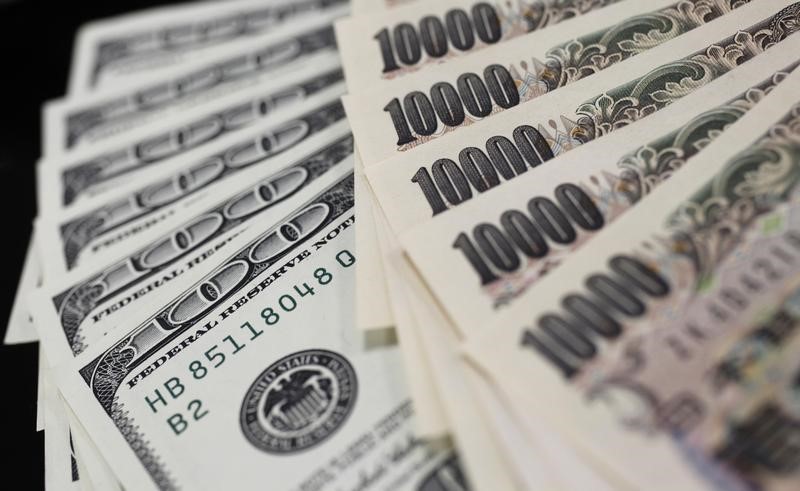By Yumna Mohamed and Patrick Graham
LONDON (Reuters) - The yen sank back toward three-week lows against the dollar on Monday as investors unwound a surge of safe-haven trades done on the back of reports of an attempted military coup in Turkey on Friday.
Turkey widened a crackdown on suspected supporters of the failed coup on Sunday, taking the number of people rounded up in the armed forces and judiciary to 6,000, and the government said it was in control of the country and economy.
That eased concerns over the prospect of another major round of turmoil to add to Europe’s economic and political problems, drawing investors back into higher-risk currencies and out of the traditional security of the yen.
"The scenario looks a bit calmer now ... so we're back to thinking about the sort of policy outlook that had the yen falling against the dollar last week," said Jeremy Stretch, head of currency strategy at CIBC in London.
Intense discussion in the past week around the prospect of the Bank of Japan directly funding a rise in government spending as "helicopter money" has weakened the yen against most other major currencies.
Some dealers, without citing actual knowledge of flows, said last week's gains for sterling against the yen might also have been inflated by flows related to Softbank's (T:9984) $32 billion purchase of Britain's ARM Holdings (L:ARM).
The pound has gained 9 percent against the yen in the past 8 days (GBPJPY=), while the dollar rose just under 5 percent.
But the broader world environment is dominated by moves by central banks toward more stimulus of the economy after a series of political blows to investment and failure of several rounds of money-printing to get growth going again.
"If you look at the course over the last 5 years, the big moves on dollar/yen all come on the back of monetary policy," said Simon Derrick, chief currency strategist at BNY Mellon.
"The fact that you can have a five percent move just on people thinking what they might do tells you what you need to know on where the focus really is."
The dollar gained almost 1 percent on the day to 105.80 yen, having reached as high as 106 yen in Asian time.
The morning's other big mover was sterling, at one stage up almost a full cent against the dollar after Bank of England policymaker Martin Weale said there was no urgent need to cut interest rates and pointed to problems with both more cuts and any further quantitative easing.
But with most major banks forecasting the pound will fall as the economic fallout of last month's vote to leave the European Union becomes clearer in the months ahead, there are sellers of sterling on any such rally. It was up just 0.2 percent at $1.3227 by 1030 GMT.
There is also some chance of the European Central Bank reducing at least one of its main interest rates on Thursday priced into short-term market interest rates, although CIBC's Stretch said there was little of such speculation on the euro.

The single currency, tied down in a tight $1.10-$1.12 range since the Brexit vote, gained 0.2 percent to $1.1046. It rose as much as 1.2 percent to 117.01 yen. (EURJPY=)